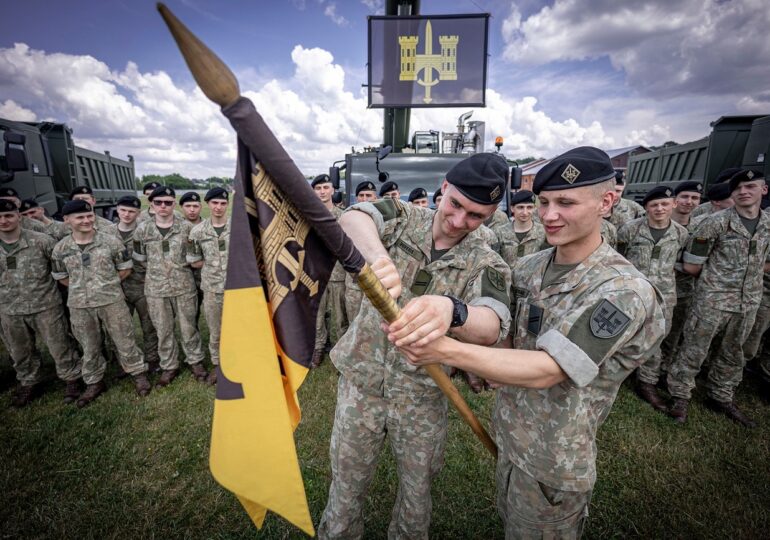The Lithuanian parliament recently extended the deadlines for mandatory military service. The decision comes amid NATO’s efforts to strengthen the eastern flank.
On June 13, the Seimas, the Lithuanian Parliament, adopted the amendment to mandatory military service.
The reform keeps the nine-month duration of mandatory military service unchanged but increases the duration of alternative service from ten months to one year. Those who wish to pursue university courses will only be able to do so after completing the military service, as reported by Deutsche Welle.
The first medical examinations for the new mandatory military service are scheduled for next year, followed by recruitment in 2026.
How the selection is done
The decision in the Vilnius legislature was preceded by years of public debate, sparked by Russia's invasion of Ukraine in 2022.
It is a major change after in 2008, four years after joining NATO, Lithuania suspended mandatory military service and transitioned to a professional army.
In 2015, a year after Russia illegally annexed Crimea, Lithuania became the first European country to reintroduce general conscription. The initial system was based on a computerized lottery.
Now many Lithuanians fear that Russia could target the Baltic states. NATO has made efforts to allay these fears by strengthening its presence along what many call its eastern flank. As part of these efforts, a German brigade is stationed in Lithuania, drawing increased attention to the country's overall defense policy.
The recent decision to reform mandatory military service is meant to signal to NATO allies that Lithuania is doing everything in its power to defend its territory and sovereignty.
Indeed, the country consistently meets NATO's defense spending target of 2% of national GDP. But with only around 18,000 professional soldiers, Lithuania has a too small permanent army.
Different times, different needs
"A few years ago, many of our politicians declared that NATO would always protect us. Being a small country, we assumed it would be possible without investing much in defense," said Vaidotas Malinionis, the head of a retired colonels' association.
"Now everything has changed, and the decision on mandatory military service has shown that," he added.
Malinionis believes that the Parliament's decision should be implemented by 2028. "It will require larger investments in infrastructure, as well as building more barracks, but it's more a matter of time than political will," he detailed.
Lithuania will continue to rely on NATO support. The German combat brigade will stay in the country long-term and will conduct military exercises alongside troops from other allied states stationed temporarily here.
Transition from the computer to the front line
Nationally, the return to mandatory military service is a long-term gain for the country's security. At an individual level, this aspect is understood but with some nuance.
Valentinas, aged 43, is the father of a young man who will be conscripted. The man, who served four years in the army, is quite skeptical about the reform of mandatory military service.
"If a real war breaks out, nine months of training - including shooting and grenade throwing - will not be enough to face a real enemy. Professional soldiers should bear the full burden of the fight, not these boys," he believes.
Instead, Valentinas believes that young people should attend courses in volunteer associations that Lithuania uses to recruit personnel for public security under martial law. He is not convinced that the Lithuanian army is ready to face current challenges.
"Many kids just sit in front of the computer and live in a virtual world. Additionally, many are mentally weak and sometimes sickly. Many students do not know what responsibility means," he adds.
Retired Colonel Malinionis acknowledges that there are difficulties regarding the aptitudes of current recruits for military service, but he does not believe the situation is critical.
"These days, about 50% are considered unfit for the army. However, first of all, some of these criteria are outdated and should be changed. And secondly, computer game enthusiasts do not need to run through the forest with an automatic weapon. The most skilled among them can handle communications, electronic warfare, and drones, where physical requirements are not as high," he explained.
Malinionis believes that such changes introduced in the recruitment law could drastically reduce the rate of young people declared unfit for military service.
T.D.

